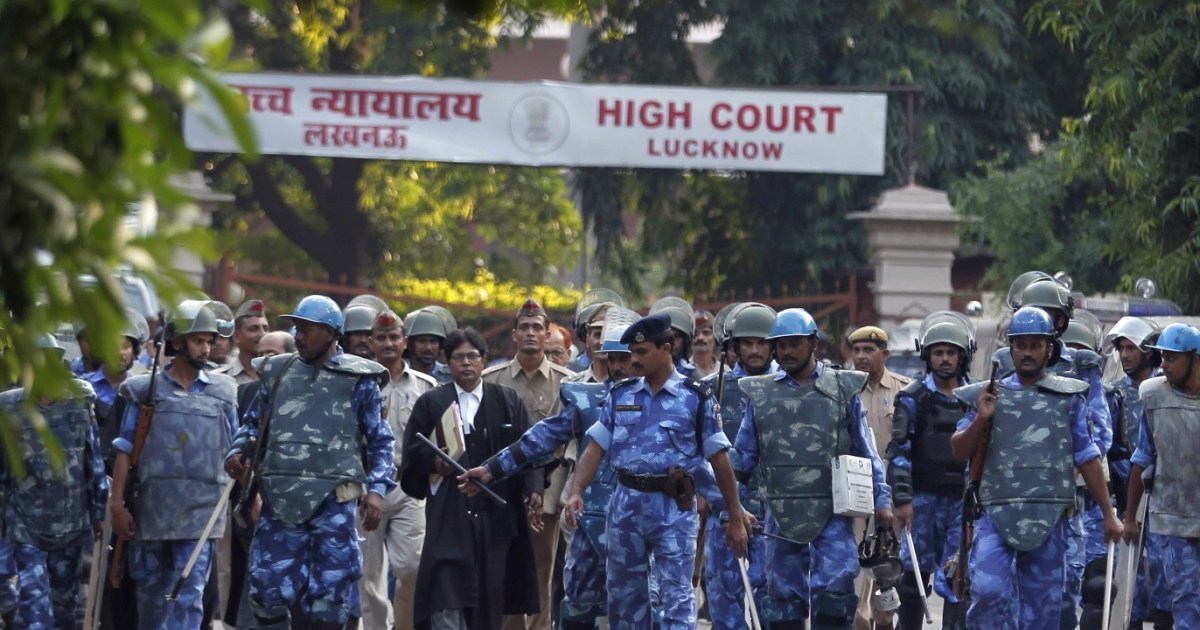Today, the group of Indian scholars filed a petition to the country’s Supreme Court, inviting it to reconsider its ruling regarding the land of the Al-Babri Mosque on the ninth of last month, in which it determined the right of Hindus to build a temple in the place of the mosque in the city of Ayodhya in northern India, and ordered the allocation of alternative land to build a mosque for Muslims .
The local channel "NDTV" quoted Fadlur Rahman Qasimi, a spokesman for the group of Indian scholars, as saying that the group submitted a 217-page file to demand a review of the ruling, because the latter contained "many contradictions that we do not understand."
After a decades-long legal dispute, the Supreme Court ordered in its decision to entrust the site to a body that would build a Hindu temple in it under certain conditions, while another separate land in Ayodhya would be handed over to Muslim groups to build a new mosque on it.
Alternative land
The Personal Status Law Council - a special body working to protect Muslims in India - rejected the alternative plot of land. He was born.
Hindu extremists claim that in the sixteenth century, Muslims demolished a temple to King Rama, whom the Hindus consider a deity, and built in his place the Al-Babri Mosque. A group of Hindus stormed the mosque in 1949, erected a statue of Rama inside, and considered it a disputed place, prompting the Indian government to close the mosque while the statue remained inside.
Radical Hindus - including leaders of the ruling Bharatiya Janata Party - demolished the mosque in 1992, sparking a wave of violence between Hindus and Muslims that left more than 2,000 dead.

